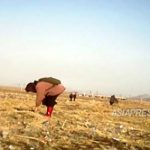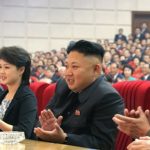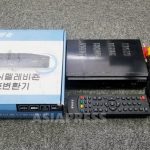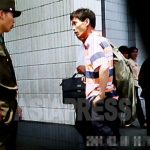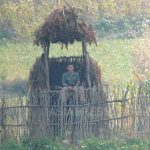In North Korea, the military's regular winter drills began on December 1, 2023. Meanwhile, military drills for civilians began in early 2024 and they are more intense than in previous years, which has led to growing discontent. With tensions between North and South Korea also on the rise, North Korean authorities are throwing gasoline onto the fire with calls to "prepare for war" and urging all North Koreans to provide support for the military. This report comes from several sources in North Hamgyung province. (KANG Ji-won and ISHIMARU Jiro)
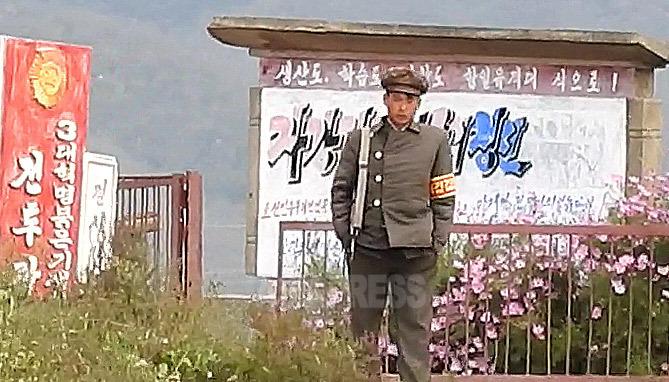
◆ Those failing to take part in drills face reduced rations and wages
Musan County, North Hamgyong Province, is home to North Korea's largest iron mine. Since mid-January, mine workers have been required to undergo reserve army (kyododae) training in addition to their regular duties. A source in Musan County told ASIAPRESS that this year's training is as grueling as that of the regular army.
"It's very hard. In the iron mines, only basic jobs such as those in the quarry and the ore concentration center are active, while the rest of the workers are mobilized in shifts for paramilitary training. The training, which begins at 8 or 9 a.m., is similar to that of the regular military, and the drills are as tough as those faced by soldiers. Exercises include repairing fortifications, assaulting enemy fortifications, and maneuvering. Soldiers are required to wear uniforms, hats, and armbands. Those who [don't] want to participate in the training have no choice but to do so, because the authorities have threatened them with a cut in their food rations and wages if they don't.”
※ Kyododae: A reserve force composed mainly of veterans and single women between the ages of 17 and 50. Each unit is similar to an army infantry division in terms of weaponry and size.
"It is cold this year, food rations are low, and many workers are suffering from the constant drills. A party cadre came to the workplace and gave a lecture, saying: 'The situation around us is serious and tense, so it wouldn't be surprising if a war broke out right now. Everyone must be vigilant and ready to mobilize. We must use our nuclear arsenal and our unity to settle [the fight against our enemies] once and for all, so we must train well.”
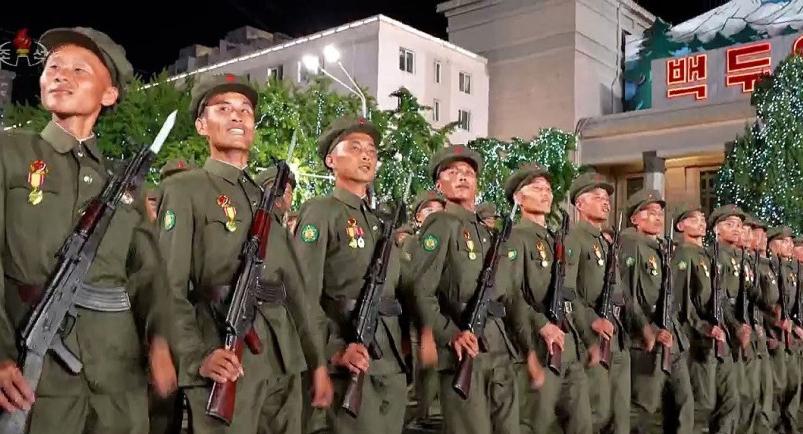
◆ Everyone must take part in drills
In neighboring North Hamgyung province, Hoeryong began its civilian-military drills in January as well. A reporting partner who lives in Hoeryong explained details regarding the civil defense training:
"Under the excellent leadership of Supreme Leader Kim Jong Un, our nuclear and missile forces have become the best in the world. In early January, the Central Committee of the Workers' Party issued a directive to be ready to strike back at any enemy provocation. So this year, 100% of citizens will participate in civil defense drills, and those who claim they cannot participate due to personal circumstances or illness will be strictly inspected [to find out whether they are telling the truth]. Some people are paying to get medical certificates from hospitals, but if any doctors are found to have issued fake certificates, the authorities are threatening to confiscate their licenses.”
In factories and enterprises, "combat emergency backpacks" have undergone inspections. They were checked to ensure they all have a week's worth of food, lighters, matches, medicines, blankets, solid fuel, and salt. This year, civil defense training will include drills in maneuvering, attacking enemy fortifications, and live fire training."
* Civil defense organizations refer to the kyododae as well as other civilian-military reserve organizations.
◆ Gloves, belts, and pork..The government demands people to donate goods to the military
In addition to strengthening the training of civilian-military reserve organizations, the government is also pushing people to provide various kinds of support for the army.
"At a meeting of our neighborhood watch unit on January 6, officials announced that a mass support project would be conducted to ensure results in the winter drills. In addition to the tasks assigned to each household, people were asked to voluntarily donate supplies such as gloves, belts, and pork, and those who were willing to do so were asked to inform the neighborhood watch units and district offices of the quantity and items to be donated.
“The order also said that the people should make voluntary contributions to improve the defense of the country. Neighborhood watch units, as well as social organizations such as the Socialist Women’s League and the Youth League, were instructed to extend their support for the army.
“Exemplary families, businesses, social organizations, and individuals who donated supplies were to be praised and given tickets to hot springs and ski resorts as a courtesy of the Workers’ Party.”
Neighborhood watch units are North Korea’s lowest-level administrative units, with about 20 to 30 households per unit.
Meanwhile, the flu has been raging in Musan and Hoeryong since mid-January.
"Thirty percent of the people around me are sick. [As a result] the military training of the civilian armed forces is not being carried out properly," said a reporting partner in Hoeryong.
※ ASIAPRESS smuggles Chinese cell phones into North Korea to maintain communication with its reporting partners.
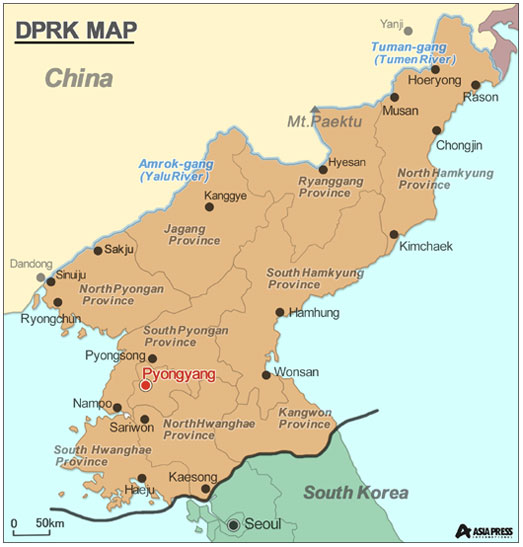
- <Inside N. Korea> Equality and corruption stemming from government push for elite education… “classes for gifted students” prioritized over ensuring equal educational opportunities for all
- <Inside N. Korea> Students and parents unhappy with shoddily-made school uniforms…Authorities crackdown on homemade uniforms to force everyone to wear the same thing
- What occurred behind the veil in N.Korea 2020-2023…A disaster unfolding due to shifts in the Kim Jong-un regime’s policies…Part 1: A blind spot with no outside witnesses ISHIMARU Jiro
- <Inside N. Korea> The Major Changes Surrounding the November 26 Elections(1) For the first time, multiple candidates on secret ballots for preliminary election…a small change in past elections
- <Inside N. Korea>Speaking to a Border Guard (1) Landmine Burial at the Korea-China Border? “Even soldiers are afraid because they don’t know where they’re buried”
